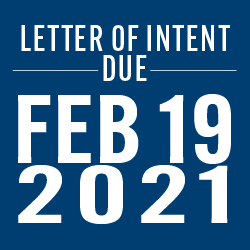
The University of Michigan Center for Gastrointestinal Research (UMCGR) invites applications for 2021 Pilot and Feasibility Program projects.
Pilot and Feasibility Program Submittal Form: Letter of Intent due February 19, 2021
- Proposals are submitted electronically through Competition Space.
- For questions, email [email protected].
Subject Matter
The University of Michigan's Digestive Disease Center is focused on fundamental, mechanism-based, basic, translational and clinical research relevant to gastroenterology. The mission of the UMCGR is to study cell signaling and communication which spans the continuum from basic mechanisms of disease to disease-oriented investigations, with the ultimate goal of identifying molecular targets and treatments.
UMCGR research is organized around three focus areas, and applications are welcome that address these areas:
- Metabolism, inflammation, and barrier disruption wound repair
- Metaplastic and dysplastic cell transformation
- Gut-brain axis in pain, motility and obesity
Who Can Apply
First priority will be given to young investigators at the University of Michigan embarking on a research career, with the hope that the Pilot and Feasibility Project will lead to the successful funding of an R01 type or career development application.
At least three years of postdoctoral training is required prior to the start of the award. Postdocs meeting this requirement, instructors/lecturers and young faculty through Assistant Professors are encouraged to apply.
More senior investigators will be considered only if the project represents a new direction in their research, and will be given lower priority.
Generally, investigators will be eligible for a maximum of two years of support in total from the Center. Initially, one year of support will be provided, and applicants seeking a second year will be expected to submit an additional competitive application in the subsequent year.
Format
Letter of Intent
All applicants must submit a letter of intent. In a combined PDF file, please submit:
- A one-page description that summarizes the hypothesis and research approach being proposed.
- A Biographical Sketch in four-page NIH format that includes present and pending funding. In the Personal Statement, clearly justify that you meet eligibility criteria.
Submit Letter of Intent to [email protected] by 2/19/21.
Final Invited Applications:
Final applications must be submitted using the UMCGR Pilot Submittal Form and the Pilot Applicant Funding Form provided below, as well as NIH PHS 398 application packet forms available at https://grants.nih.gov/grants/funding/phs398/phs398.html.
Please use Arial font, no smaller than 11 pt, and assemble your application as follows:
- UMCGR Pilot and Feasibility Program Submittal Form (downloaded from this page)
- NIH PHS 398 forms:
- Form page 1: Face Page
- Form page 2: Summary, Relevance, Key Personnel
- Form page 3: Table of Contents
- Form page 4: Detailed Budget for Initial Period
- Form page 5: Budget for Entire Proposed Project Period, with budget justification (do not use the modular budget pages)
- NIH Biosketch
- Resources page
- Scientific proposal, not to exceed a total of five pages (Aims, Significance, Work-to-Date, and Research Plan). You may also attach any relevant papers or supporting letters, etc. Important: Current Pilot Awardees should include a brief update on the progress of their current project in the Science section.
- Pilot Applicant Funding Form (downloaded from the link in Competition Space/InfoReady)
Budget
Maximum budget request is $30,000/year. A maximum of two years of funding will be provided. Applicants seeking a second year will be expected to submit another competitive application in the year of requested funding.
Deadline/Review
- A Letter of Intent is required and is due on Friday, February 19, 2021. Submit Letter of Intent to [email protected].
- Applicants will be notified by Friday, February 26, 2021, if they are invited to submit a full proposal.
- Invited applications will be due by Wednesday, March 10, 2021. The proposals will be reviewed, including evaluation by the Center's External Advisory Committee in a fashion similar to the NIH review process. Finalists will be expected to give a 10-15 minute presentation on their projects to this committee before award selections are made. Funding period is June 1 to May 31 for up to two years.
- For questions or information, you may contact the Center's Director, Dr. Chung Owyang ([email protected]) or Dr. Yatrik Shak, Center Co-Director ([email protected]) or Center Administrator Susan Chrysogelos ([email protected]), or Center Program Assistant Pamela Varga ([email protected]).



